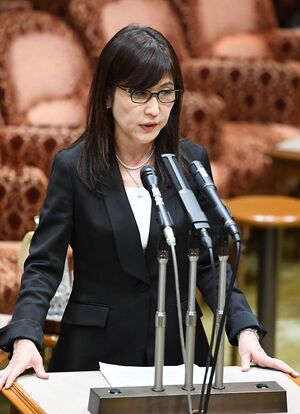Global Neoconservative Movement: Difference between revisions
No edit summary |
|||
| Line 25: | Line 25: | ||
==Criticism== | ==Criticism== | ||
Many neoconservative governments had been under a series of harsh criticisms since 2023. However, one of the most prevalent and harshest critics of the movement were the countries of the [[Great Lucis and Accordo|United Kingdom]], [[Gallia-Bruhl]], [[Erebonian Empire]], [[Zanarkand and the Besaid Islands|Zanarkand]], and [[New Akiba]]. During the [[Eurasianna War]], the six nations refused its participation on the [[2025 Invasion of Indiae]]. Later on, the [[Allied High Council]], headed by the 5 Neoconservative countries declared the [[Erebonian Empire]] as a {{wp|rogue state}} as a result, the [[Allied High Council]] does not recognize its existence. This began a series of internal strife and disunity within the Allied nations. The six nations would later form the anti-neoconservative council known as the '''Council of Six''' | Many neoconservative governments had been under a series of harsh criticisms since 2023. However, one of the most prevalent and harshest critics of the movement were the countries of the [[Great Lucis and Accordo|United Kingdom]], [[Gallia-Bruhl]], [[Erebonian Empire]], [[Zanarkand and the Besaid Islands|Zanarkand]], and [[New Akiba]]. During the [[Eurasianna War]], the six nations refused its participation on the [[2025 Invasion of Indiae]]. Later on, the [[Allied High Council]], headed by the 5 Neoconservative countries declared the [[Erebonian Empire]] as a {{wp|rogue state}} as a result, the [[Allied High Council]] does not recognize its existence. This began a series of internal strife and disunity within the Allied nations. The six anti-neoconservative nations would later break away and form the anti-neoconservative council known as the '''Council of Six''', and later by its current name, the [[Heimdallr Council]]. | ||
Erebonian Prime Minister [[Victor S. Arseid]] called out on the neoconservative governments for its dissolution of various trade unions and privatisation of various public properties, after various protests by the working classes began to take place and with rising market prices. Rubrumian Prime Minister [[Erick Allaire]] criticized the Neoconservatives' foreign intervention policy. Implying that their actions will drag the world into another war. | Erebonian Prime Minister [[Victor S. Arseid]] called out on the neoconservative governments for its dissolution of various trade unions and privatisation of various public properties, after various protests by the working classes began to take place and with rising market prices. Rubrumian Prime Minister [[Erick Allaire]] criticized the Neoconservatives' foreign intervention policy. Implying that their actions will drag the world into another war. | ||
Revision as of 17:20, 30 April 2020
The global neoconservative movement is a global political movement originating from four countries: Quenmin, Joyonghea, Concordia, Bethausia and the Holy Trabian Empire. It advocates and endorses neoconservative policies and viewpoints on foreign policy against the Autocratic East Europan Imperial Alliance and its allies. The movement also oversaw the rise and dominance of neoconservatism in such governments.
After the end of the Imperial Crisis, the Treaty of Tristannia was signed to by the East Europan government, leaving the nation intact with its incumbent monarch and government. Politicians from prominent Allied nations grew discontented and suspicious of the state of affairs, apprehensive about a resurgence of East Europa's aggressive power over the world, especially via its allies. Consequently, influential politicians such as succeeding Quenminese Prime Minister Quyền Phương Anh, succeeding Joyonghean Prime Minister Pan Nam-seon, succeeding Concordian Prime Minister Robert Starkweather, succeeding Bethausian Prime Minister Khaing Zeyar Zin and succeeding Trabian Prime Minister Raphaëlle Ménétries, have called upon the endorsement and practice of neoconservatism for the mutual sake of "preserving national sovereignty." Alongside this motive, the main notions that they push for is preemptive war and regime change against the Imperial Alliance and its allies. They also advocate the need for sacrificing civil liberties in order for the agenda to be implemented with little to no obstruction from the public.
Background
The Movement
Quenmin

Joyonghea
Concordia
Bethausia
Holy Trabian Empire
Decline
Criticism
Many neoconservative governments had been under a series of harsh criticisms since 2023. However, one of the most prevalent and harshest critics of the movement were the countries of the United Kingdom, Gallia-Bruhl, Erebonian Empire, Zanarkand, and New Akiba. During the Eurasianna War, the six nations refused its participation on the 2025 Invasion of Indiae. Later on, the Allied High Council, headed by the 5 Neoconservative countries declared the Erebonian Empire as a rogue state as a result, the Allied High Council does not recognize its existence. This began a series of internal strife and disunity within the Allied nations. The six anti-neoconservative nations would later break away and form the anti-neoconservative council known as the Council of Six, and later by its current name, the Heimdallr Council.
Erebonian Prime Minister Victor S. Arseid called out on the neoconservative governments for its dissolution of various trade unions and privatisation of various public properties, after various protests by the working classes began to take place and with rising market prices. Rubrumian Prime Minister Erick Allaire criticized the Neoconservatives' foreign intervention policy. Implying that their actions will drag the world into another war.
